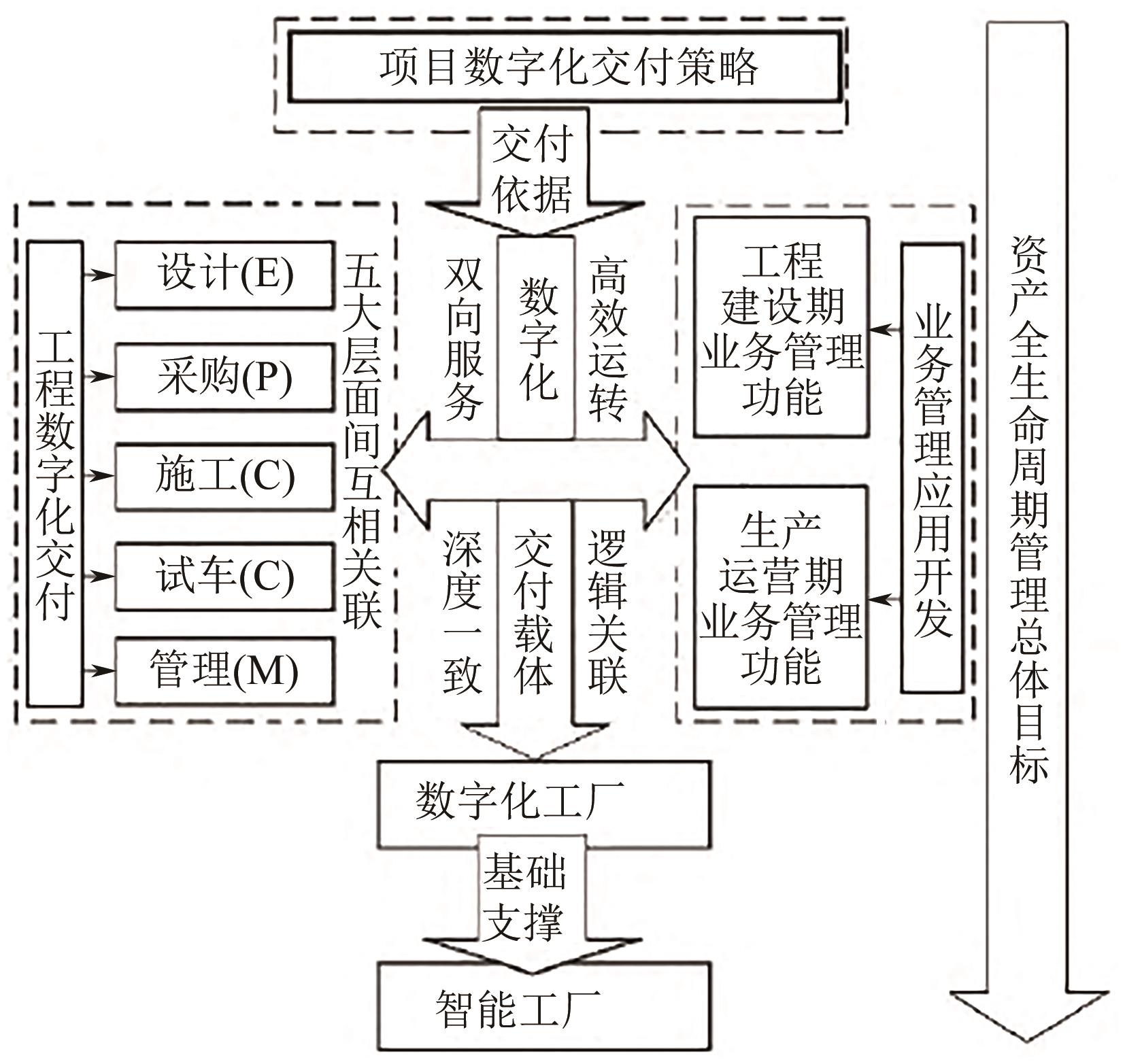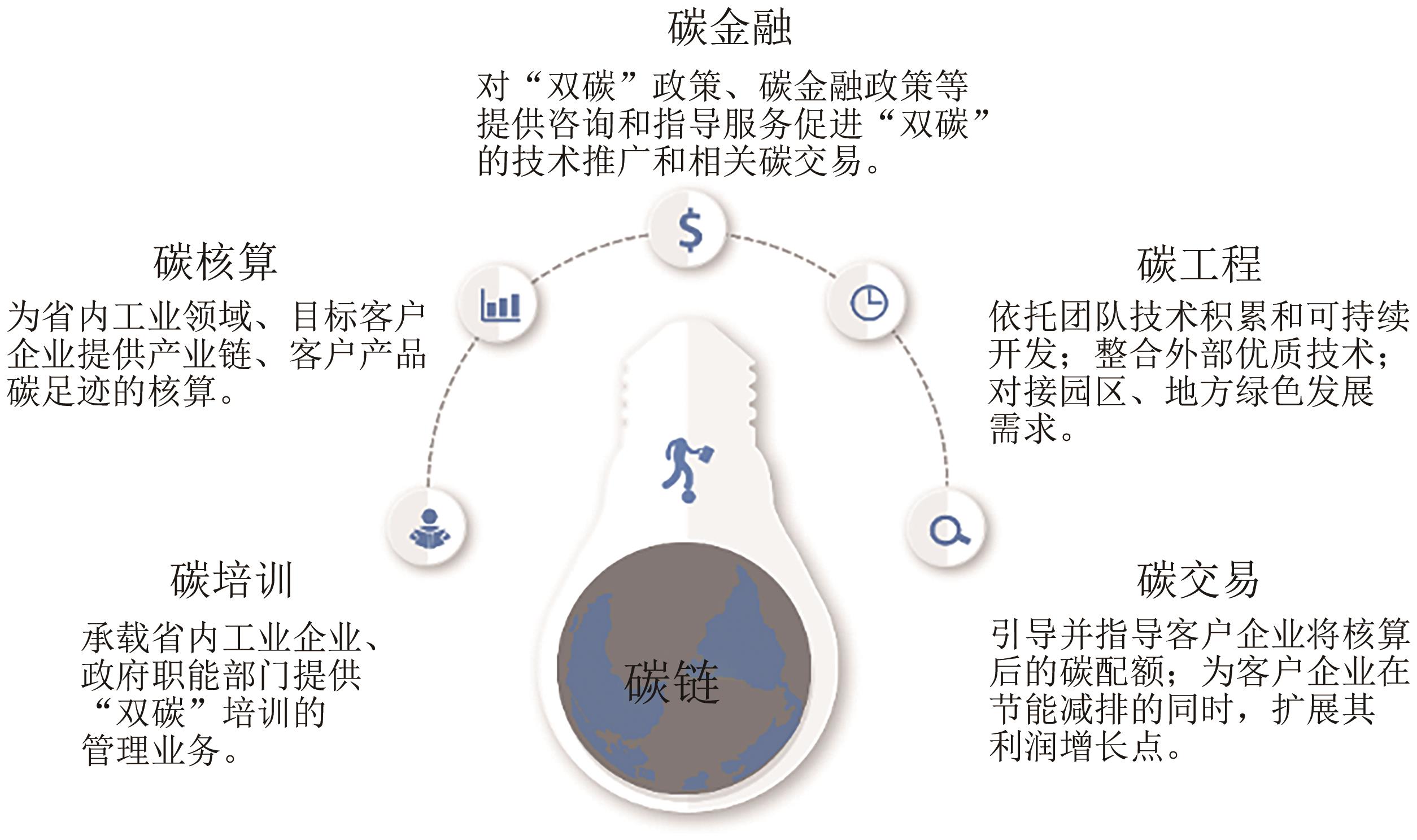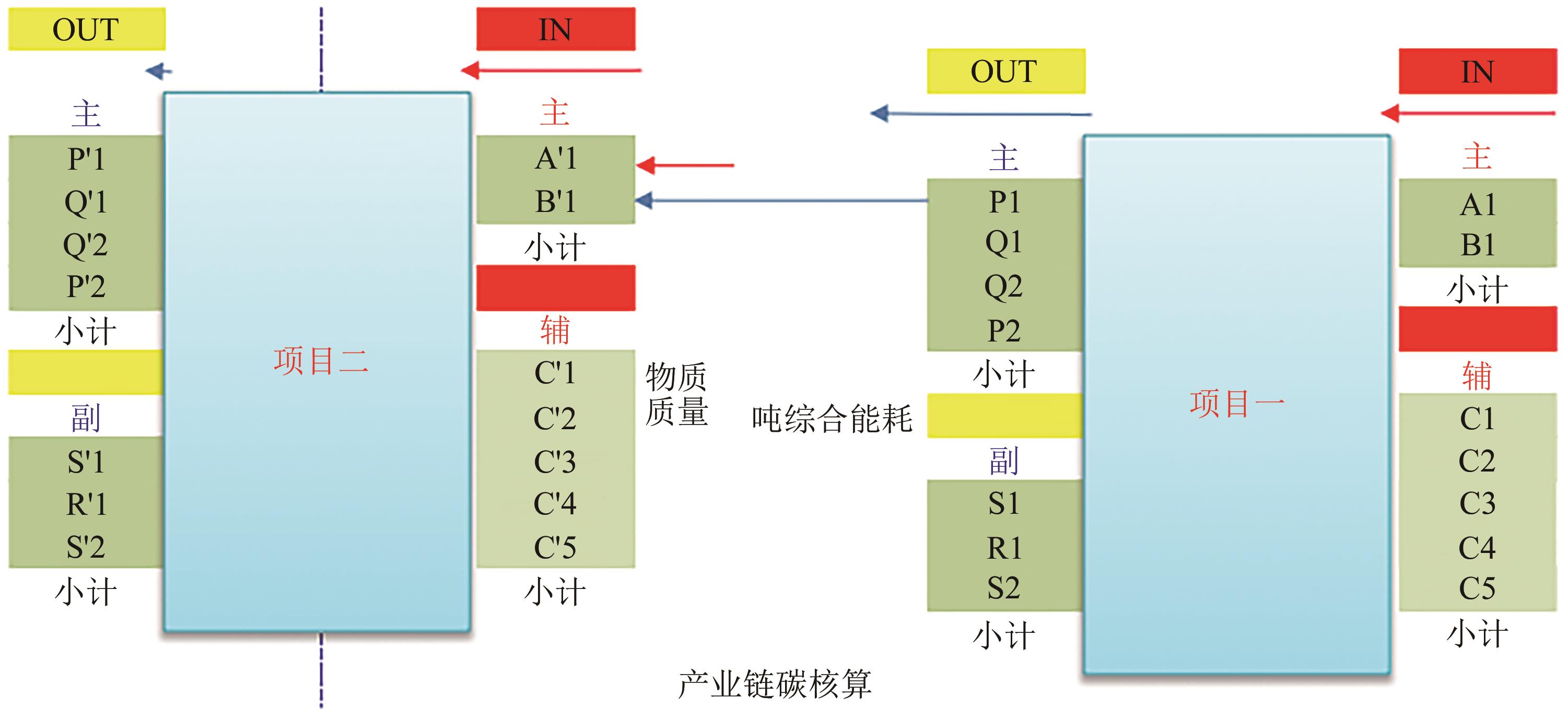| 1 |
徐政,左晟吉,丁守海. 碳达峰、 碳中和赋能高质量发展: 内在逻辑与实现路径[J]. 经济学家, 2021(11): 62-71.
|
|
XU Zheng, ZUO Shengji, DING Shouhai. Carbon peaking and carbon neutrality empowering high quality development: Intrinsic logic and implementation path[J]. Economist, 2021(11): 62-71.
|
| 2 |
尚舵, 李渊源, 何慧虹, 等. 石化化工行业数字化转型路径研究与探索[J]. 新型工业化, 2023, 13(12): 27-40.
|
|
SHANG Duo, LI Yuanyuan, HE Huihong, et al. Research and exploration of the digital transformation path in the petrochemical and chemical industry[J]. The Journal of New Industrialization, 2023, 13(12): 27-40.
|
| 3 |
刘战豫, 张伞伞. “双碳” 目标下制造业碳减排的数字技术实现路径研究[J]. 资源开发与市场, 2024, 40(4): 511-520.
|
|
LIU Zhanyu, ZHANG Sansan. Research on the digital technology realization path of manufacturing carbon emission reduction under carbon peaking and carbon neutrality goals[J]. Resource Development & Market, 2024, 40(4): 511-520.
|
| 4 |
辛雨. 中国产业数字化发展水平及空间溢出效应研究[D]. 济南: 山东财经大学, 2023.
|
|
XIN Yu. Research on the development level and spatial spillover effects of China’s industrial digitization[D].Jinan: Shandong University of Finance and Economics, 2023.
|
| 5 |
戴厚良, 陈建峰, 袁晴棠, 等. 石化工业高质量发展战略研究[J]. 中国工程科学, 2021, 23(5): 122-129.
|
|
DAI Houliang, CHEN Jianfeng, YUAN Qingtang, et al. High-quality development of the petrochemical industry in China[J]. Strategic Study of CAE, 2021, 23(5): 122-129.
|
| 6 |
吕铁, 韩娜. 智能制造: 全球趋势与中国战略[J]. 人民论坛·学术前沿, 2015(11): 6-17.
|
|
Tie LYU, HAN Na. Intelligent manufacturing: Global trends and China’s strategy[J]. Frontiers, 2015(11): 6-17.
|
| 7 |
韩丹涛,赵艳领,郑秋平. 5G技术在工业领域的研究[J]. 中国仪器仪表, 2023(10): 17-21.
|
|
HAN Dantao, ZHAO Yanling, ZHENG Qiuping. Research on 5G technology in the industrial field[J]. China Instruments and Meters, 2023(10): 17-21.
|
| 8 |
陈悦. 5G技术在石油化工行业的应用研究[J]. 石化技术, 2023, 30(9): 102-104.
|
|
CHEN Yue. Research on the application of 5G technology in petrochemical industry[J]. Petrochemical Industry Technology, 2023, 30(9): 102-104.
|
| 9 |
田源. 数字技术赋能石化产业转型升级[N]. 中国石化, 2021 (8): 21-23.
|
|
TIAN Yuan. Digital technology empowers the transformation and upgrading of the petrochemical industry[N]. Sinopec Monthly, 2021 (8): 21-23.
|
| 10 |
袁宪铭. 基于人工智能的化工图像识别技术及应用[D]. 青岛: 青岛科技大学, 2023.
|
|
YUAN Xianming. Chemical image recognition technology and application based on artificial intelligence[D].Qingdao: Qingdao University of Science & Technology, 2023.
|
| 11 |
中华人民共和国工业和信息化部. 绿色化工园区评价导则: [S]. 北京:中国标准出版社. 2021: 1-19.
|
|
Ministry of Industry and Information Technology of the People’s Republic of China. Guidelines for evaluation of green chemical industrial parks: [S]. Beijing: China Standards Publishing House 2021: 1-19.
|
| 12 |
余娜. 仅占6%! 化工园区智慧化建设亟须提速[N]. 中国工业报, 2023-10-31(6).
|
| 13 |
“数字化” 与“绿色化” 协同发展是必然趋势[J]. 绿色建筑, 2022, 14(1): 1.
|
|
The coordinated development of “digitalization” and “greening” is an inevitable trend[J]. Green Building, 2022, 14(1): 1.
|
| 14 |
WANG Yafei, LIU Jing, ZHAO Zihan, et al. Research on carbon emission reduction effect of China’s regional digital trade under the “double carbon” target—combination of the regulatory role of industrial agglomeration and carbon emissions trading mechanism[J]. Journal of Cleaner Production, 2023, 405: 137049.
|
| 15 |
栗继祖. 以数字化赋能“双碳” 目标实现[J]. 煤炭经济研究, 2023, 43(10): 1.
|
|
LI Jizu. Digitalization empowers the achievement of the “dual carbon” target[J]. Coal Economic Research, 2023, 43(10): 1.
|
| 16 |
李菲菲, 崔金栋, 汪羽晴, 等. 碳中和视角下新型储能产业与数字化耦合发展路径研究[J]. 情报科学, 2023, 41(11): 94-102.
|
|
LI Feifei, CUI Jindong, WANG Yuqing, et al. The coupled development path of new energy storage industry and digitalization from the perspective of carbon neutral[J]. Information Science, 2023, 41(11): 94-102.
|
| 17 |
张华, 罗那. 《石油化工工程数字化交付标准》解析与实施[J]. 石油化工设计, 2023, 40(2): 47-52.
|
|
ZHANG Hua, LUO Na. Analysis and implementation of standard of digital delivery for oil refining and petrochemical project[J]. Petrochemical Design, 2023, 40(2): 47-52.
|
| 18 |
李家华, 黄黎明, 陈良志, 等. 油气化工码头工程数字化交付全过程研究[J]. 港口航道与近海工程, 2023, 60(4): 12-16.
|
|
LI Jiahua, HUANG Liming, CHEN Liangzhi, et al. Research on digital delivery process of petrochemical wharf project[J]. Port, Waterway and Offshore Engineering, 2023, 60(4): 12-16.
|
| 19 |
潘亮. 一体化化工基地的数字化技术分析[J]. 广东化工, 2023, 50(18): 64-65, 74.
|
|
PAN Liang. Digital technology analysis of integrated chemical site[J]. Guangdong Chemical Industry, 2023, 50(18): 64-65, 74.
|
| 20 |
温小艳. 石油化工企业生产调度数字化运营平台研究[J]. 中国信息化, 2022(9): 83-84, 92.
|
|
WEN Xiaoyan. Research on digital operation platform of production scheduling in petrochemical enterprises[J]. China Informatization, 2022(9): 83-84, 92.
|
| 21 |
孙晓曦, 苗领, 王彦杰. 传统产业数字化转型赋能“双碳” 目标实现——传导机制、关键问题与路径优化[J]. 技术经济与管理研究, 2023(12): 97-101.
|
|
SUN Xiaoxi, MIAO Ling, WANG Yanjie. Digital transformation of traditional industries empowers the realization of the “carbon-peak and carbon-neutrality” target: Transmission mechanism, key issues and path optimization[J]. Journal of Technical Economics & Management, 2023(12): 97-101.
|
| 22 |
孔帅. 数字经济背景下企业数字化转型的问题研究[J]. 数字通信世界, 2024(1): 161-163.
|
|
KONG Shuai. Research on the digital transformation of enterprises in the background of digital economy[J]. Digital Communication World, 2024(1): 161-163.
|
| 23 |
杜昊远. “5G+工业互联网” 助力煤化工企业绿色数字化转型[J]. 中国工业和信息化, 2022(1): 58-61.
|
|
DU Haoyuan. “5G+ industrial Internet” helps the green digital transformation of coal chemical enterprises[J]. China Industry & Information Technology, 2022(1): 58-61.
|
| 24 |
宋钰. 石油化工企业数字化转型路径研究[J]. 石化技术, 2023, 30(11): 212-214.
|
|
SONG Yu. Research on digital transformation path of petrochemical enterprises[J]. Petrochemical Industry Technology, 2023, 30(11): 212-214.
|
| 25 |
王萍萍, 赵永椿, 张军营, 等. 双碳目标下燃煤电厂碳计量方法研究进展[J]. 洁净煤技术, 2022, 28(10): 170-183.
|
|
WANG Pingping, ZHAO Yongchun, ZHANG Junying, et al. Research progress on carbon measurement methods of coal-fired power plants under the background of carbon neutrality[J]. Clean Coal Technology, 2022, 28(10): 170-183.
|
| 26 |
WANG Yong, YANG Hanxiao, SUN Ruixin. Effectiveness of China’s provincial industrial carbon emission reduction and optimization of carbon emission reduction paths in “lagging regions”: Efficiency-cost analysis[J]. Journal of Environmental Management, 2020, 275: 111221.
|
| 27 |
马翠梅, 苏明山. 加快建立统一规范的碳排放统计核算体系 以高质量数据支撑“双碳” 目标实现[J]. 中国环境监察, 2022(9): 40-42.
|
|
MA Cuimei, SU Mingshan. Accelerate the establishment of a unified and standardized carbon emission statistical accounting system to support the realization of “double carbon” goals with high-quality data[J]. China Environment Supervision, 2022(9): 40-42.
|
| 28 |
马雪, 王洪涛. 生命周期评价在国内的研究与应用进展分析[J]. 化学工程与装备, 2015(2): 164-166.
|
|
MA Xue, WANG Hongtao. Analysis on the research and application progress of life cycle assessment in China[J]. Chemical Engineering & Equipment, 2015(2): 164-166.
|
| 29 |
张丽欣, 段志洁, 燕百强, 等. 美国和欧盟温室气体管理机制对我国电力行业碳排放管理的启示[J]. 中国电力, 2013, 46(5): 77-82.
|
|
ZHANG Lixin, DUAN Zhijie, YAN Baiqiang, et al. The enlightenment of GHG MRV under US EPA and EU ETS for China power generation[J]. Electric Power, 2013, 46(5): 77-82.
|
| 30 |
刘业业. 石油炼制工业过程碳排放核算及环境影响评价[D]. 济南: 山东大学, 2020.
|
|
LIU Yeye. Process-based carbon emission estimation method and life cycle environment assessment of the petroleum refining industry[D].Jinan: Shandong University, 2020.
|
| 31 |
田亚峻, 邓业林, 张岳玲, 等. 生命周期评价的发展新方向: 基于GIS的生命周期评价[J]. 化工学报, 2016, 67(6): 2195-2201.
|
|
TIAN Yajun, DENG Yelin, ZHANG Yueling, et al. New direction of life cycle assessment: GIS-based life cycle assessment[J]. CIESC Journal, 2016, 67(6): 2195-2201.
|
| 32 |
郝颖, 刘刚, 张超. 国外碳交易机制研究进展[J]. 国外社会科学, 2022(5): 106-118, 197.
|
|
HAO Ying, LIU Gang, ZHANG Chao. Overseas research on carbon trading mechanism[J]. Social Sciences Abroad, 2022(5): 106-118, 197.
|
| 33 |
王科, 吕晨. 中国碳市场建设成效与展望(2024)[J]. 北京理工大学学报(社会科学版), 2024, 26(2): 16-27.
|
|
WANG Ke, Chen LYU. Achievements and prospect of China’s national carbon market construction(2024)[J]. Journal of Beijing Institute of Technology (Social Sciences Edition), 2024, 26(2): 16-27.
|
| 34 |
李丽旻. 碳交易市场将有新规范[N].中国能源报. 2024-01-15, (2).
|
|
LI Limin. The carbon trading market will have new regulations[N]. China Energy News. 2024-01-15. (2).
|
| 35 |
CHANG Chia-Lin, Teke MAI, MCALEER Michael. Establishing national carbon emission prices for China[J]. Renewable and Sustainable Energy Reviews, 2019, 106: 1-16.
|
| 36 |
HUANG Weiqing, WANG Qiufang, LI Han, et al. Review of recent progress of emission trading policy in China[J]. Journal of Cleaner Production, 2022, 349: 131480.
|
| 37 |
林水静,苏南. CCER时隔七年正式重启[N]. 中国能源报, 2024-01-29(1).
|
|
LIN Shuijing, SU Nan. CCER officially restarted after seven years[N]. China Energy News, 2024-01-29(1).
|
| 38 |
李京, 赵禹程, 李昊霖, 等. 中国金融机构布局碳金融综述[J]. 电气技术与经济, 2023(6): 189-195, 198.
|
|
LI Jing, ZHAO Yucheng, LI Haolin, et al. Summary of carbon finance in the layout of financial institutions in China[J]. Electrical Equipment and Economy, 2023(6): 189-195, 198.
|
| 39 |
张静. 石化企业利用碳金融工具促进绿色发展的建议[J]. 能源化工财经与管理, 2023, 2(4): 40-47.
|
|
ZHANG Jing. Suggestions for petrochemical enterprises to use carbon financial instruments for green development[J]. Finance and Management of Energy Chemical Industry, 2023, 2(4): 40-47.
|
| 40 |
杨烨. 创新碳金融产品优化绿证核发及交易机制[N]. 上海证券报, 2024-03-06(009): 1-2.
|
|
YANG Ye. Innovative carbon finance products optimize green certificate issuance and trading mechanisms[N]. Shanghai Securities, 2024-03-06. (009): 1-2.
|
| 41 |
相超, 王川. 碳金融模式综述及对油气公司的建议[J]. 国际石油经济, 2023, 31(10): 30-41.
|
|
XIANG Chao, WANG Chuan. Overview of carbon finance models and recommendations for oil and gas companies[J]. International Petroleum Economics, 2023, 31(10): 30-41.
|
| 42 |
庄贵阳. 打造生态文明发展新范式[J]. 理论导报, 2020(8): 26-28.
|
|
ZHUANG Guiyang. Creating a new paradigm for the development of ecological civilization[J]. Theoretical Introduction, 2020 (8): 26-28.
|
| 43 |
崔志坤, 祖琪琦, 刘梓妍, 等. 欧盟碳边境调节机制下中国开征碳税的应对分析[J]. 税收经济研究, 2023, 28(6): 40-48, 95.
|
|
CUI Zhikun, ZU Qiqi, LIU Ziyan, et al. Analysis of China’s carbon tax responses to the EU carbon border adjustment mechanism[J]. Tax and Economic Research, 2023, 28(6): 40-48, 95.
|
 ), ZHANG Yan2, YANG Yan3, JI Hongbing1,2(
), ZHANG Yan2, YANG Yan3, JI Hongbing1,2( )
)


